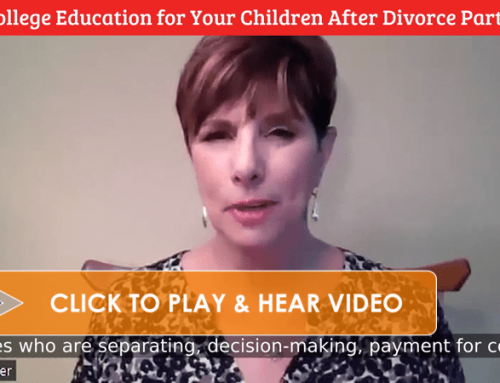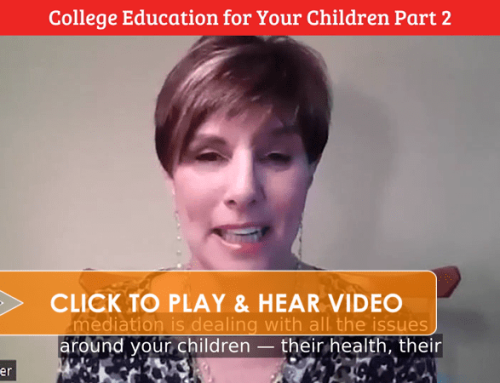
In Buddies or Partners – The Anatomy of a Marriage, I explored the nuanced differences between what it is to be a buddy and/or a partner in a marriage. Now I’d like to address how this concept holds for a post-separation relationship as well.
I have many couples who come to my mediation table and express a strong desire to continue the on-going “buddy” relationship they have had with each other prior to stepping into my office. So often I’ve heard some version of the following: “We don’t hate each other, we want to do this amicably – not only for ourselves but for our kids.” The buddy relationship appears to be intact and probably will be so into the future.
For others, that warm and fuzzy feeling doesn’t necessarily exist, but for the sake of the kids, what DOES need to be present is, at the very least, a cordial partnership with each other. And let’s not forget the extended family and friends who really don’t want to take sides nor get involved in all the sordid details of a marriage on the rocks. I don’t think enough can be stated about this.
Most of us, when we’re going through a rough patch, have a tendency to bring in the “Greek Chorus” to support us, reinforce us – tell us we’re right! At first, people are more than ready to help, give advice, be a shoulder to cry on, an ear to listen. But think about it – after a while, what can anyone really say, do or advise that will truly make a difference for you? This is because for the most part, no one else has the inside track on your marriage – so how could they even begin to comment on it?
Many people will feel free to offer their opinions regardless! But is this really helpful to you? Besides, we all have our own problems and enticing as it may be to tell someone else what they “should do”, the ongoing drama gets old to the listener after a while and without realizing it, you may have become a bore – a complainer, a naysayer, a drag. Moreover, what tends to happen is if you don’t take the advice of your confessor – they lose interest in your complaints. They see you coming with the same old story, set on a different day and it’s, ‘Yeah, yeah, yeah, blah, blah, blah.” Is THAT how you want to show up for your family, friends, colleagues?
Ultimately, we are all responsible for our own relationships in life and how much better would your life be, if you could be adult about how you handle them? My mother used to tell my sisters and me, when we complained about one of our friends and how they were acting toward us, that “we train people how to treat us.” Mom is always right!
So if a buddy relationship is just not possible for you and your spouse, consider the possibility that a partnership of some sort may be. That would mean that at the very least you and your soon-to-be-former spouse continue to be partners in learning how to co-exist in a post-separation world with cordiality and respect; partners in co-parenting your children to the highest good; and partners in allowing your friends, family and colleagues off the emotional hook for the choices you make.


![Staying Ahead in Mediation and Guiding the Path Forward [VIDEO]](https://divorceandfamilymediationcenter.com/wp-content/uploads/2025/02/1739479805background_0002-500x383.png)
![Supporting Children Through Divorce: The Importance of Mediation [VIDEO]](https://divorceandfamilymediationcenter.com/wp-content/uploads/2024/10/IMG-Supporting-Children-Through-Divorce-The-Importance-of-Media-500x383.png)


Co-parents in a post-divorce family should be helped to develop a willingness to maintain financial responsibilities, continue parental contact with their ex-spouse, and support contact of children with their ex-spouse and his or her family. Couples who haven’t begun to resolve the Emotional Divorce are much more likely to end up in a protracted, destructive, financially draining and family destroying legal process. Spouses divorce each other, but they do not divorce their children. While few former spouses can remain perfect pals, many more can be saved from the devastation of angry associates, fiery foes and dissolved duos. Divorce ends a relationship but not a family. Families in which the emotional issues of divorce are not adequately resolved can remain stuck for years. The families we make are the legacies we leave. What are your future dreams?